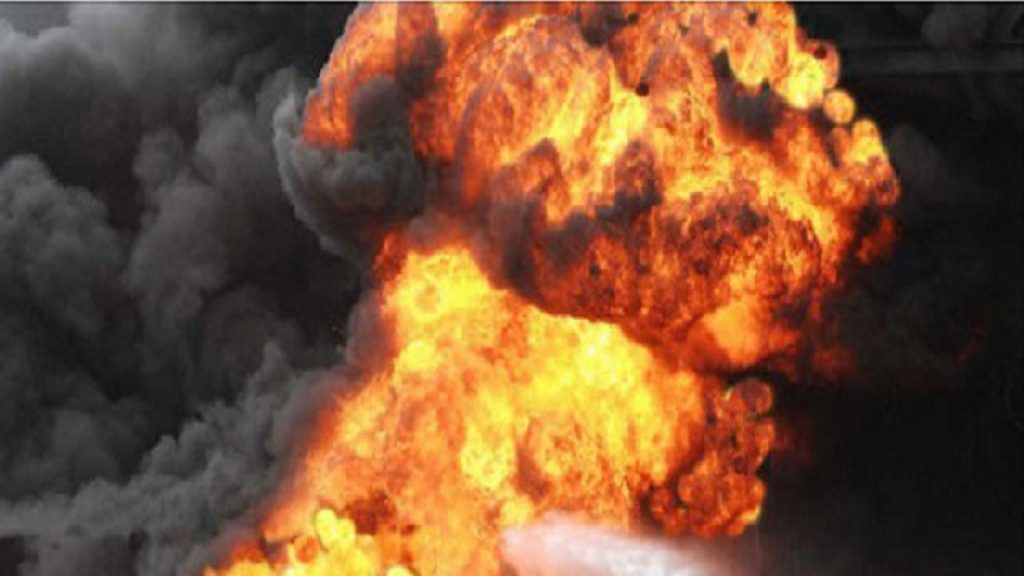A devastating gas explosion ripped through the Nobpet fueling station in Port Harcourt, Rivers State, leaving a trail of destruction and injury in its wake. The incident, which occurred on a Thursday morning around 10 am, sent shockwaves through the surrounding area, impacting not only the fueling station but also the adjacent premises of the Ebonyi State Transport Corporation. Five individuals were injured, and eight vehicles were reduced to charred wreckage in the ensuing inferno. The explosion underscored the inherent risks associated with the proximity of fueling stations to residential and commercial areas, prompting calls for stricter regulations and greater safety measures.
The explosion’s impact extended beyond the immediate vicinity of the fueling station. The fire, fueled by the escaping gas, rapidly spread to the nearby Ebonyi State Transport Corporation, where several vehicles were parked. Eight of these vehicles were completely consumed by the flames, highlighting the rapid and devastating nature of the conflagration. The ferocity of the fire required the combined efforts of the Rivers State Fire Service and the Nigerian Air Force Fire Service to finally bring it under control. The incident served as a stark reminder of the potential for catastrophic consequences when safety protocols are not rigorously enforced or when fueling stations are located in close proximity to other structures.
Among the victims of the explosion was Emmanuel Ninyaegwu, a commercial driver whose 18-seater bus was among the vehicles destroyed. Ninyaegwu, who sustained an ear injury, described the harrowing moments leading up to the explosion. He recounted how he was preparing to load his vehicle, accompanied by his pregnant wife, when the sudden eruption of fire forced him to flee for his life. The trauma of the experience was palpable in his voice as he described witnessing his livelihood reduced to ashes. The incident underscores the human cost of such disasters, impacting not only the direct victims but also their families and dependents.
The supervisor of the Ebonyi State Transport Corporation in Rivers State, Anthony Ofoke, also suffered injuries in the explosion and lost two of his vehicles. Ofoke’s account painted a picture of chaos and desperation as people scrambled to escape the spreading flames. The incident left him deeply shaken, and he voiced his concerns about the dangers of situating fueling stations near residential areas. His plea for government intervention reflects a broader community concern about the potential hazards posed by such establishments and the need for stricter regulations to protect lives and property.
The response to the explosion highlighted both the effectiveness and the challenges faced by local emergency services. The combined efforts of the Rivers State Fire Service and the Nigerian Air Force Fire Service were crucial in containing the blaze. However, the initial struggle of the fire service operatives, who reportedly ran out of water during the operation, underscores the need for adequate resources and preparedness to effectively respond to such emergencies. The timely intervention of the Air Force, providing both medical assistance and additional firefighting resources, proved instrumental in bringing the situation under control.
The aftermath of the explosion saw the Rivers State Police Public Relations Officer, Grace Iringe-Koko, confirming the incident and announcing the commencement of an investigation. This investigation will likely focus on determining the root cause of the explosion, assessing the extent of the damage, and evaluating the adherence to safety regulations at the Nobpet fueling station. The findings of this investigation will be crucial in preventing future incidents and ensuring greater safety standards within the industry. The incident serves as a wake-up call for stricter enforcement of safety protocols, more comprehensive risk assessments, and potentially a re-evaluation of the zoning regulations that govern the placement of fueling stations within populated areas.














